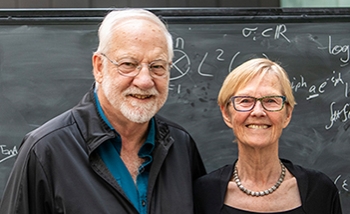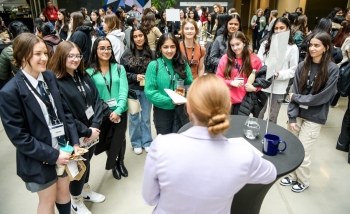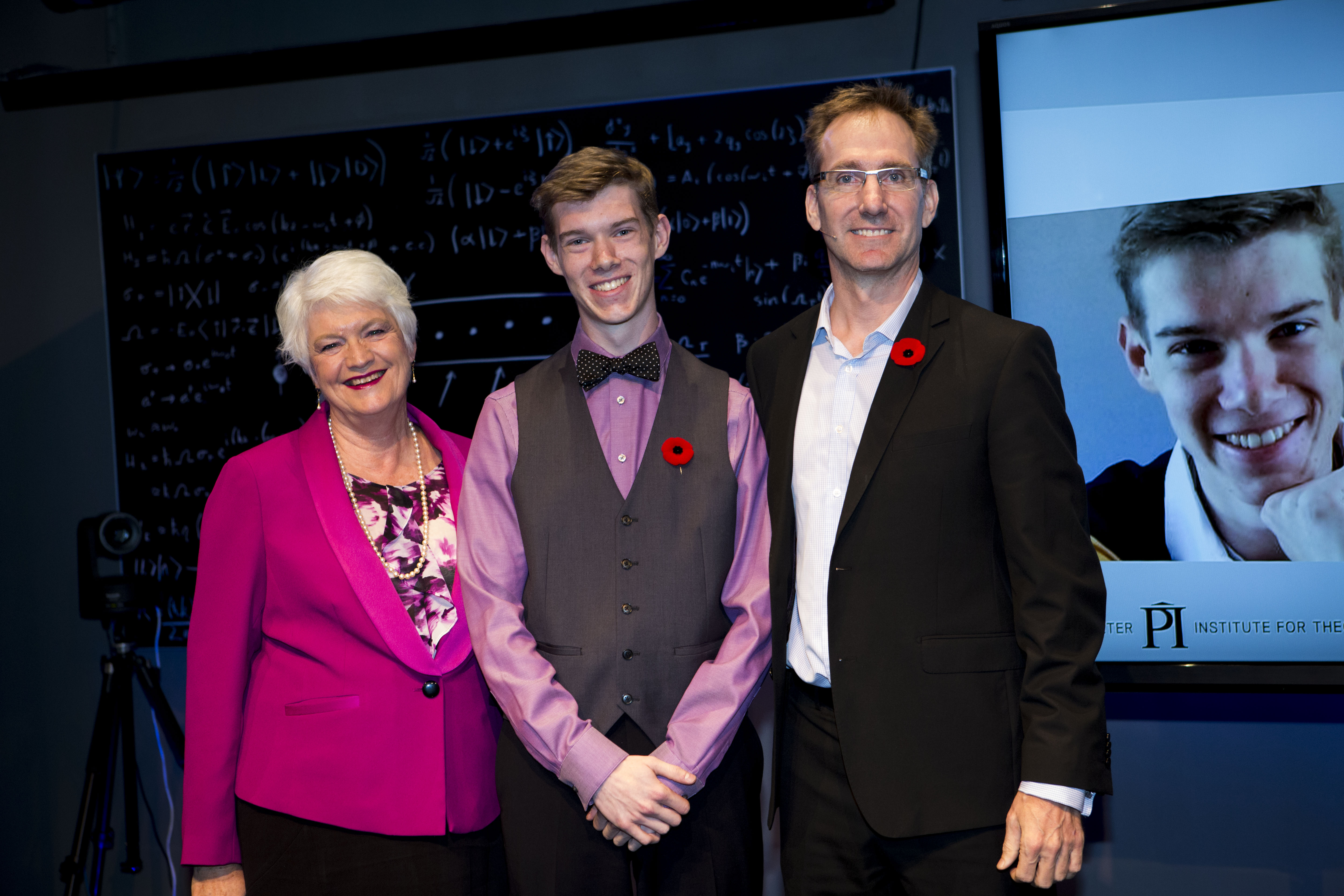As a child, every time Sean Begy’s extended family got together for Thanksgiving, or Christmas, or any of the myriad reasons the close-knit clan could invent, he knew he was in for a treat.
At some point in the evening, his older cousin Luke would pull him aside to show him the science fair experiment or diorama he was working on, and explain the science behind it.
One particular day, when Begy was eight, Luke showed him a desk toy with rotating black and white panels inside a glass bulb. It was a Crookes radiometer, an instrument that demonstrates the nature of light.
As the panels moved around, powered by light and nothing else, Begy was astounded. He wanted to know more.
Now 18 and a first-year science student at Queen’s University in Kingston, Ontario, Begy is still pushing to learn all that he can.
But the cousin who inspired him to pursue science isn’t able to share in his discoveries. Luke Santi died of brain cancer in 2007, at the age of 16, after a too-short life dedicated to physics, basketball, volleyball, debating, and volunteering at Perimeter Institute.
So it was an emotional evening on Wednesday, November 4, when Begy travelled back to his hometown of Waterloo to accept the Luke Santi Memorial Award for Student Achievement, a scholarship Perimeter awards each year in Luke’s honour.
“I think he would be so proud,” Begy said of his cousin. “His science journey was ended too short. We all know that he would have been a terrific scientist, and could have very well changed the world somehow.
“I got to take the steps that he didn't, so I'm following his trail. I like to think that maybe I can help him out by doing this somehow – I can live his legacy. He's always with me. He's been my mentor since day one. Anything I do, he'd be there with me.”
The awards ceremony capped off a heady couple of days for the student, who bumped into recent Nobel laureate Art McDonald at the Queen’s campus on Tuesday, then sat down for dinner with Nobel laureate David Wineland after Wednesday night’s award presentation and Wineland's public lecture (which you can watch here).
Talking before the award presentation, Begy admitted he was a little nervous. “It should be an amazing thing to sit down and talk, specifically, to a Nobel laureate about his lecture and his research. It's definitely not something you can do every day, let alone two days in a row. It should be fantastic.”
It’s no surprise that he expects to leave Perimeter feeling inspired, but it’s not just due to his dinner date; Begy seems to find inspiration in everything he touches.
Of all the academic and extra-curricular efforts that helped earn him the award (he excelled in tennis, volleyball, and basketball, competed in math and science contests, was an eager arts volunteer, and played a lead role in his high school play at Resurrection Catholic Secondary School in Waterloo), it is drama class that he credits with having the most overt impact on his life.
“I was always very shy and reserved, especially when giving presentations. In two years, I transitioned from shy, nerdy, awkward kid, to now I'm outgoing, and everybody in school knows me.”
That openness shines through as he chats easily about his love of science, and the efforts he has made to share that magic with children – just as his cousin did for him.
As he plunges into university science – with an eye to pursuing cosmology or particle physics in the long term – Begy says he once again feels like a child standing wide-eyed before a world of possibility.
“There's no turning back. It's my path.”
ABOUT THE LUKE SANTI AWARD FOR STUDENT ACHIEVEMENT
Established and funded by Perimeter Institute for Theoretical Physics, this award is presented annually in memory of Luke Santi, who as a high school student demonstrated a passion for research and discovery, earned top marks in his courses, took part in a variety of extra-curricular activities, and volunteered his time in service of others. In honour of Luke’s many accomplishments and contributions, the award is presented annually to a Canadian student who demonstrates Luke’s many qualities – academic performance, interest in science, extra-curricular activities, and volunteering – and has begun post-secondary education in the physical sciences at a Canadian university.
About PI
Perimeter Institute is the world’s largest research hub devoted to theoretical physics. The independent Institute was founded in 1999 to foster breakthroughs in the fundamental understanding of our universe, from the smallest particles to the entire cosmos. Research at Perimeter is motivated by the understanding that fundamental science advances human knowledge and catalyzes innovation, and that today’s theoretical physics is tomorrow’s technology. Located in the Region of Waterloo, the not-for-profit Institute is a unique public-private endeavour, including the Governments of Ontario and Canada, that enables cutting-edge research, trains the next generation of scientific pioneers, and shares the power of physics through award-winning educational outreach and public engagement.
You might be interested in




